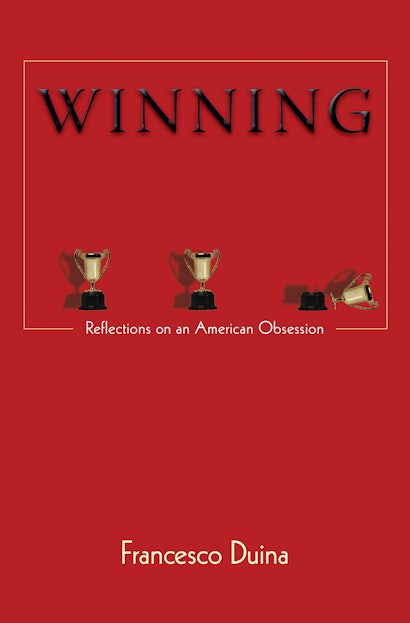Most of us are taught from a young age to be winners and avoid being losers. But what does it mean to win or lose? And why do we care so much? Does winning make us happy? Winning undertakes an unprecedented investigation of winning and losing in American society, what we are really after as we struggle to win, our collective beliefs about winners and losers, and much more.
Francesco Duina argues that victory and loss are not endpoints or final destinations but gateways to something of immense importance to us: the affirmation of our place in the world. But Duina also shows that competition is unlikely to provide us with the answers we need. Winning and losing are artificial and logically flawed concepts that put us at odds with the world around us and, ultimately, ourselves. Duina explores the social and psychological effects of the language of competition in American culture.
Primarily concerned with our shared obsessions about winning and losing, Winning proposes a new mind-set for how we can pursue our dreams, and, in a more satisfying way, find our proper place in the world.
Awards and Recognition
- One of Choice's Significant University Press Titles for Undergraduates for 2010-2011
"Using a good mix of sociological theory, psychological data, headliners, and anecdotes, Duina makes an excellent start at understanding this big issue and providing groundwork for additional explorations of the US's search for 'indefinite perfectibility.' The descriptions of Americans' pursuit of and beliefs regarding winning will make many blush with self-recognition. Duina's excellent new perspective on chasing the American dream offers much to reflect on."—Choice
"Linguistically inquiring, sociologically penetrative, and culturally fascinating, Duina's book is part self-help manual, part critical inquiry into the American psyche, and wholly an essential guide to a misunderstood obsession."—Journal of American Studies
"This book is important because it poses the question how much competition we really need in rich nations, with high levels of economic and cultural productivity. The answer to this question is relevant in discussions about the role of governments and about the optimal levels of liberalization or regulation of markets. Duina's suggestions to moderate and redirect competition by changing the American mind-set are valuable."—Jan Ott, Journal of Happiness Studies
"Duina effectively explores the sociological embeddedness of competition from which winning and losing arise. . . . The issues that are introduced have great interest for those teaching within social psychology or practicing within consulting psychology."—Richard Ackley and Lee Derryberry, PsycCRITIQUES
"Winning is an important contribution to our current understanding and theorising about the individual and societal drive to compete. . . . Winning is a valuable offering to all of us as we navigate competition, winning and losing in our own lives—and strive to assist those in our charge . . . who also must come to grips with them."—Andrew J. Martin, Australian Review of Public Affairs
"Winning offers a penetrating journey into our competitive spirit. It challenges our everyday assumptions about the good life and how we pursue, but seldom attain, happiness. Arguing that much needs to change about the American mind-set, this book will interest anyone willing to step back and reflect on what has clearly become a national obsession."—Emil M. Dabora, Harvard Management Company
"Winning takes a beautiful and engaging look at America's love affair with competition and with avoiding defeat at all costs. Relying on a comparative framework, Duina shows that American society pays a price for emphasizing winning precisely because Americans are so often confused by what this means. With a wealth of superb examples drawn from entertainment, sports, education, politics, and business, Winning encourages us to step back and reconsider our obsession with the ultimate prize."—Paulette Kurzer, University of Arizona
"Duina's accessible examination of the language of winning and losing reveals that competition is not a human universal, but a historical and cultural phenomenon. Making ample use of examples from popular culture, he shows that competition's prominence in America arises from our unsatisfied desire for a clear, positive, and socially approved identity. Winning is a worthy addition to the literature on the sociology of culture."—Liah Greenfeld, Boston University


